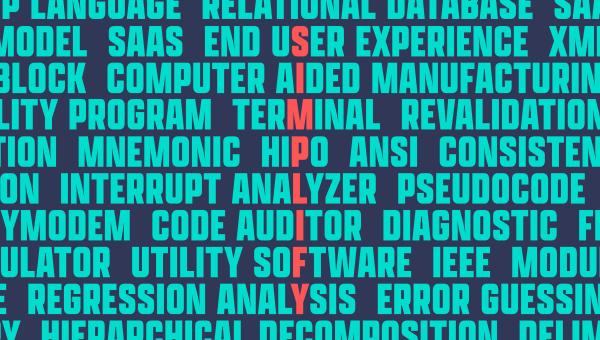Unlocking the Future: The Evolution of Online Learning Platforms in 2025
the education landscape is undergoing a seismic conversion. As we venture into 2025, online learning platforms are not only disrupting conventional classrooms but also reimagining how, where, and why we learn. From artificial intelligence-driven personalization to immersive virtual classrooms, the future of online education holds exciting opportunities and novel challenges. In this article, we delve deep into the sweeping changes shaping e-learning, highlight key trends, share practical tips, and discuss how you can benefit from today’s cutting-edge digital education platforms.
The Evolution of Online Learning Platforms: A 2025 Outlook
The rapid advancement of educational technology has redefined the contours of online learning. Once limited to video lectures and static quizzes, modern e-learning platforms in 2025 offer robust, interactive, and adaptive learning experiences powered by AI, big data, and cloud computing. Let’s explore the core drivers behind this evolution.
- Artificial Intelligence Integration: AI tailors content, assessments, and feedback, ensuring each learner receives a customized path for maximum success.
- Immersive Technologies: augmented Reality (AR) and Virtual Reality (VR) create rich, hands-on simulations—from medical surgery practice to interactive language labs.
- Microlearning & Nanolearning: Content is broken into bite-sized, easily digestible modules promoting retention and flexible study.
- Gamification: Earning badges, completing missions, and scoring leaderboards increase engagement and motivation among learners of all ages.
- Global Accessibility: Cloud-based platforms make high-quality education accessible anytime, anywhere, democratizing learning opportunities worldwide.
Top Benefits of Modern Online Learning Platforms
Embracing the latest trends in digital education brings unprecedented advantages to students, educators, and organizations. here are some standout benefits as we move through 2025:
1. Personalized Learning Journeys
Adaptive algorithms learn your strengths and weaknesses, offering targeted resources and feedback to accelerate mastery. No more one-size-fits-all curriculum.
2. Collaborative Virtual Classrooms
Real-time chat, team projects, and interactive discussions break down geographical barriers, fostering global peer-to-peer learning communities.
3.Self-Paced & Flexible Study Schedules
Busy professionals, parents, and students can learn on thier own time, balancing education with work and life commitments.
4. Enhanced Outcomes through Data Analytics
Platforms monitor user progress and engagement, empowering educators to intervene early and provide targeted support where needed.
5.Cost-Effective & Scalable Education
Institutions can deploy courses to thousands of learners without the expenses of physical infrastructure, making lifelong learning more affordable.
Key Trends Defining Online Learning in 2025
To stay on the cutting edge, it’s vital to be aware of the prevailing trends that set apart next-generation online learning platforms:
- AI-Powered Content Curation: Personalized lesson plans, adaptive assessments, and real-time feedback are the norm, not the exception.
- Blockchain for Credentialing: Secure, tamper-proof digital diplomas and certificates are revolutionizing how achievements are verified and shared.
- Voice & Language Assistants: Smart assistants provide on-demand explanations, language translations, and study reminders.
- Peer-to-peer tutoring & Mentorship: Platforms connect learners to tutors and industry experts for just-in-time help and career guidance.
- Social Learning Networks: Inspired by social media, modern e-learning integrates feeds, group discussions, and community challenges to foster engagement and collaboration.
Case Study: Revolutionizing STEM Learning with Virtual Reality
In 2025, EduSphere, a leading e-learning platform, piloted a VR-based laboratory program to support high school STEM education. Students from rural areas—many without access to physical labs—participated in realistic chemistry and physics experiments using affordable VR headsets. The outcome?
- Student performance in STEM subjects rose by 31% within a single semester.
- Over 90% of participants expressed strong engagement and requested additional VR-powered modules.
- Teachers noted increased collaboration and critical thinking among geographically distributed learners.
This case underscores how embracing emerging technologies can level the educational playing field and inspire a new generation of innovators.
Practical Tips for Maximizing Your Online Learning Experience
Online education in 2025 is more accessible and engaging than ever—but getting the most out of it still requires intentionality. Here are actionable tips to help learners succeed on digital platforms:
- Set Clear Goals: Define what you want to achieve before enrolling in any course or program.
- Embrace Interactivity: Actively participate in live sessions, forums, and peer discussions for a richer, more connected experience.
- Leverage AI-Driven Tools: Use built-in analytics dashboards to monitor progress and identify weak areas.
- Schedule Regular Study Time: Treat online learning with the same priority as in-person classes for better retention.
- Seek Support When Needed: Don’t hesitate to contact mentors, tutors, or instructors—most platforms offer robust support systems.
Frist-Hand Experiences: Voices from the Digital Classroom
“As a working mom, the flexibility and personalization of modern online learning platforms made it possible for me to earn my certification. The AI-powered recommendations kept me on track,and the community forums made me feel connected,even from home.”
— Sara L., marketing Professional
“The VR-enabled labs were a game-changer in my engineering course. I could practice with virtual equipment I’d never see in person. It felt real—and it was actually fun!”
— Miguel R., university Student
Conclusion: Embracing the Future of Online Learning
The evolution of online learning platforms in 2025 is more than a technological leap—it represents a paradigm shift towards a more inclusive, engaging, and effective educational future. By leveraging artificial intelligence, immersive environments, and social connectivity, today’s digital classrooms empower learners to pursue knowledge on their own terms. Whether you’re a student, a parent, or a lifelong learner, embracing these advancements can unlock new pathways for personal and professional growth. The future of education is now—are you ready to take the next step?

